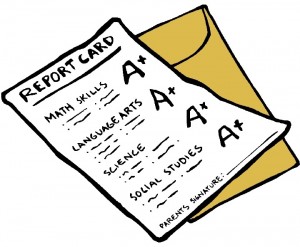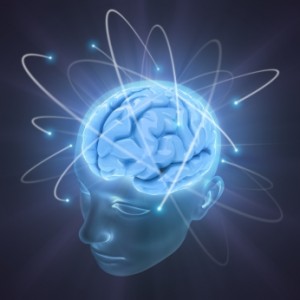 Its been weeks since I last wrote. So much has transpired that this proper update is due. I will start by saying my sabbatical is finished. My commitments to learn Chinese, develop a big data community, volunteer for Open Data Hong Kong, write, and ponder my next move met with mixed success. As evidenced by the lack of activity on this blog, my writing commitment to writing flagged towards the end. But the other projects generally went well.
Its been weeks since I last wrote. So much has transpired that this proper update is due. I will start by saying my sabbatical is finished. My commitments to learn Chinese, develop a big data community, volunteer for Open Data Hong Kong, write, and ponder my next move met with mixed success. As evidenced by the lack of activity on this blog, my writing commitment to writing flagged towards the end. But the other projects generally went well.
One Lesson That Changes Your Life
When I was young I had a lisp. As a child a lisp is not a serious problem. But as I entered puberty it became a liability. I remember my mom sending me to speech therapists with no success. Then one day I met a therapist that worked at my high school. In 30 seconds she showed me something that instantly corrected my lisp. With that new knowledge I went home and practiced my new speech. I never again lisped.
What she did that no other therapist had tried was use a model to demonstrate to me correct speech. She removed from her bookshelf a molded plastic design of the mouth and tongue. The model was human-sized and bisected vertically. When held from one side it looked like a head. When held from the other side the viewer could peer into the mouth and see positions of the teeth, tongue, and lower jaw. She showed me where a tongue was supposed to be placed when making a proper ‘s’. I could replicate that. I could finally speak normally. I was 15 years old.
I think of how simple the solution was and how strange that it was untried by therapists before. Each person’s cognitive style is different. Previous therapists had given me drills and worked on my psyche and described things in ways that I obviously did not understand. And one person came in with a different approach. A spacial model that resonated with my unique kinesthetic style. And it worked.
This story occurred to me on my way home from Chinese class on Tuesday. We had our first listening quiz and I scored 20%. I know I have one of the best vocabularies among my classmates. And I know my pronunciation is among the best in the class. People see that and they assume I am being falsely modest when I say I do not understand people when they speak Chinese. But Tuesday’s 20% grade shows that my problem is not an inflated sense of modesty.
One of my previous Chinese teachers told me of his own cognitive challenges. He has studied English for 20 years and by any judgment would be called fluent. Yet he shared with me that he only understands about 20% of television news programming. Something about the pace of speech combined with use of unfamiliar political or geographical terms disrupts his understanding. Like me, he hears one word he does not understand and focuses on it. As we focus on that mysterious word, searching in our memory for its definition, we miss entire sentences and lose track of the content. We have a cognitive style that struggles with real time information sprinkled with undefined components.
I see that great linguists listen with soft ears. They are able to hear sentences, casually dismiss the portions they do not understand, and infer the speaker’s meaning. I guess my hard hears–my sharp listening–is a detriment in language study. It is greatly impeding my studies.
So on this past Tuesday afternoon, taking the train home from my morning classes, I remembered my youthful struggles with speech and how a single person instantly corrected my impediment and changed my life forever. Is there an analog for a listening impediment? Is there a person that could explain better to me this idea of soft listening? That could help my reason incorporate unfamiliarity while extracting meaning? I hope so. I have a life to find this person and receive that single lesson.
Sabbatical Half-year Report Card
 Just over six months ago my sabbatical began. This mid-life professional break saw me leave EMC with great trepidation and uncertainty. I knew this break would be enjoyed but at a great opportunity cost. But I also knew it could change me in wonderful ways. So from my sabbatical’s start I was committed not to waste the opportunity.
Just over six months ago my sabbatical began. This mid-life professional break saw me leave EMC with great trepidation and uncertainty. I knew this break would be enjoyed but at a great opportunity cost. But I also knew it could change me in wonderful ways. So from my sabbatical’s start I was committed not to waste the opportunity.
In early June I started sharing with my friends and family the personal goals for this year-long break. I wanted to formulate a rough development plan that would prove to myself that a “break” from work could be as productive as employment. Its been six months since that plan was conceived. So it is appropriate now to give myself a half-year report card.
Below are my sabbatical projects, a grade, and commentary.
Sabbatical First Half Report Card
Personal development: write one blog a week. Execution: A-. Effort: A-. Except for a weekend or two break I have dedicated some time each week to personal reflection. I have committed to developing my writing by sharing the observations of that period.
Chinese studies: learn to read, write, and speak. Execution: B-. Effort: A+. Learning Mandarin has been complex, to say the least. My reading comprehension has soared. I struggle mightily with listening comprehension. But my commitment has been strong. I am surely studying more than most of my classmates.
Big data consultancy: meetings, website, blogging, and network building. Execution: C+. Effort: B+. I have presented half a dozen times to business and academic audiences. My professional blog‘s audience has grown steadily. I have been invited to join research groups and industry events based on my work. But building a reputation takes time. And a consultancy/advisory business would take many more months’ worth of reputation than I originally anticipated.
Exercise. Execution: B. Effort: B. I now attend yoga about three times a week. I hit the gym one time a week. I run about 10km a week. Not a bad regimen.
Open Data volunteer work. Execution: B. Effort: B. I have not been as involved with the Open Data Hong Kong group’s administrative activities as I might have originally liked. But I have made great strides in building a team of researchers that use ODHK’s data.
Entrepreneurial ambitions. Execution: C. Effort: C. Certainly for the first three months the idea of starting a business was only a shadow of a dream in my head. Now my energies are focused and I have a shot to create something successful. I was rudderless for the first four months but feel I am on track now.
Bonus project: big data community. Execution: A. Effort: A. I wanted to develop a network of people interested in big data analytics in Hong Kong. The work I was doing to build Information Incognita’s readership unexpectedly produced a group of students from three different Hong Kong schools that want to learn about big data. I started a Google+ community dedicated to Hong Kong Big Data. It today has 111 members and will have its first meeting next week.
Sabbatical Second Half Projects
I initially planned for this sabbatical to last about a year. That timeline was defined primarily by the one-year diploma curriculum at the Chinese University of Hong Kong’s Chinese Language School. But the one-year limit is heavily influenced by my dwindling finances.
With about half a year left, I have a few more things I want to accomplish:
- Continued Chinese study. My last term will include business discussions and newspapers. But I sorely need improvement in my listening comprehension.
- Big Data community. I would love to run three or four meetings for computer scientists, statisticians, and data hackers in Hong Kong. Building this network and helping young students may provide its own rewards.
- Exercise. I hope to continue getting at least four good workouts a week. Ideally five or six.
- The Big Idea. My business partner and I have started early phases of market research on a business for Asia-based technology companies. Within six months I will need to qualify or disqualify this idea. Then it potentially becomes a full-time job.
- More writing. I am doing well with this personal blog and Information Incognita. My plan is to continue contributing once a week to each. But should other professional writing become important these two blogs may suffer. But as long as I am writing something I will consider this goal fulfilled.
Creativity and Focus
 I have never been a coffee drinker. I have enjoyed alcohol for years. But not until this sabbatical did I realize how essential both would be for this break’s projects.
I have never been a coffee drinker. I have enjoyed alcohol for years. But not until this sabbatical did I realize how essential both would be for this break’s projects.
I rarely drank coffee because I did saw no point and did not particularly enjoy the taste. I sleep well most nights and almost never feel tired. Not never, of course. I have certainly stayed out past proper bedtime on occasion and felt drowsy in the day’s quiet lulls. But 19 out of 20 days I never felt sluggish until before lying in bed. And I saw no point developing a coffee addiction if it could be avoided.
But my Chinese studies have introduced a kind of mental fatigue I had never before known. Even during my insanely busy periods at EMC–ten or more days of 12-14 hours of work a piece–my mental fatigue did not compromise my work. It was tiring, for sure. But not the kind of tiring that impacted my focus. But language study is different. One iota of sleep less than I need and I catch my mind wandering in the first hour of class. I wrangle it back into the room only minutes later to find it has again escaped. But coffee fixes this.
Empathy
 Friday was one of my worst days at Chinese class. Bad days are common for me. Some days I feel I cannot keep up with the teacher. Some days I struggle to speak in response to questions. Some days I want to quit. Friday was one of them.
Friday was one of my worst days at Chinese class. Bad days are common for me. Some days I feel I cannot keep up with the teacher. Some days I struggle to speak in response to questions. Some days I want to quit. Friday was one of them.
Struggling in class unfamiliar to me. I was always a good student. But the feeling of failing is a utterly foreign. And most days in this rediscovery of student life I feel that way.
In some of my many musings on dimensions of intelligence I recognize the vast differences in people’s abilities to pick up new skills. Athletes with kinesthetic intelligence quickly master a new sport. Creative savants can piece together fascinating art with unplanned materials. And historically those gifted with language have been the first of their culture to cross geographic divides into foreign lands. Imagine the first European linguists using their genius to decode the strange tongues in North America with zero context or reference.
In language there is surely a continuum of capabilities defined not just by experience but an innate intelligence. It spans from the genius Europeans that first spoke with southern Africans and native Americans to the dullards that cannot imitate or comprehend a strange uttering. I am not so pessimistic as to sort myself completely at the simpleton’s side of this range. But in a class full of people interested in learning a new language, I know I am one of the closest to it.
Improving Multi-dimensional Intelligence
 Many years ago I saw a program on the Discovery Channel. In the show several types of “geniuses” were collected: a physicist, mathematician, a spelling star, a writer, and others. All participating geniuses took a traditional IQ test, for which the physicist scored highest. But the IQ test we all know–logic puzzles and mathematics and geometry–tests to the physicists natural strengths and experience. While the other participants scored lower on that test, they scored much higher in tests measuring other human capabilities. In other words, genius is relative. And a variety of tests can identify different types of genius.
Many years ago I saw a program on the Discovery Channel. In the show several types of “geniuses” were collected: a physicist, mathematician, a spelling star, a writer, and others. All participating geniuses took a traditional IQ test, for which the physicist scored highest. But the IQ test we all know–logic puzzles and mathematics and geometry–tests to the physicists natural strengths and experience. While the other participants scored lower on that test, they scored much higher in tests measuring other human capabilities. In other words, genius is relative. And a variety of tests can identify different types of genius.
Ever since I saw this show I have been fascinated with the idea of dimensions in intelligence. I remember seeing a demonstration of a special type of intelligence on display at the World Series of Poker (WSOP) in 2004. Before I played in the WSOP, I was often the best player in local games in San Jose, California. But at that table in Vegas I was one of the worst. And one of my opponents kept proving it to me. He repeatedly announced my intent before I said anything. (Incidentally, that was an excellent tactic to intimidate me.) While that unknown gentleman may very well have failed high school math, he was a savant with respect to human behavior.
I realized then that people’s real strengths are not obvious. Indeed, uncovering them can be incredibly difficult. We are accustomed to measuring intelligence with logic quizzes and breadth of vocabulary and wittiness. But how does this account for my erstwhile poker opponent? How do we measure behavior prediction based on minute changes in posture and facial expression? And how do we recognized those that quickly master new languages? Or can readily understand emotional state in a meaningful and empathetic way?

